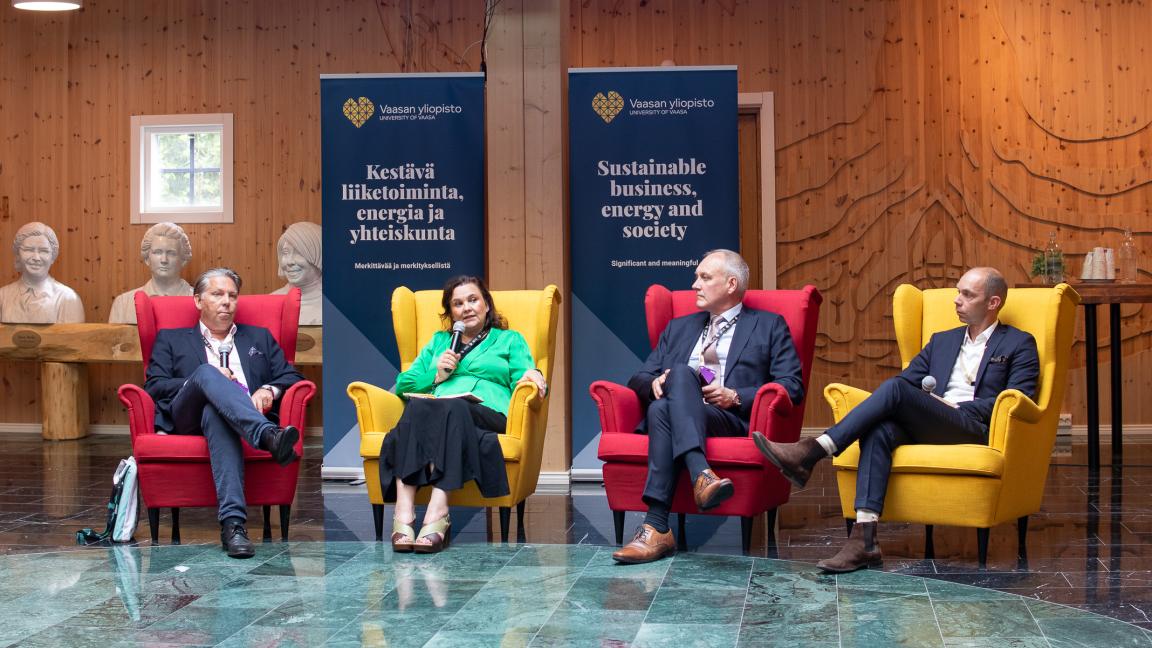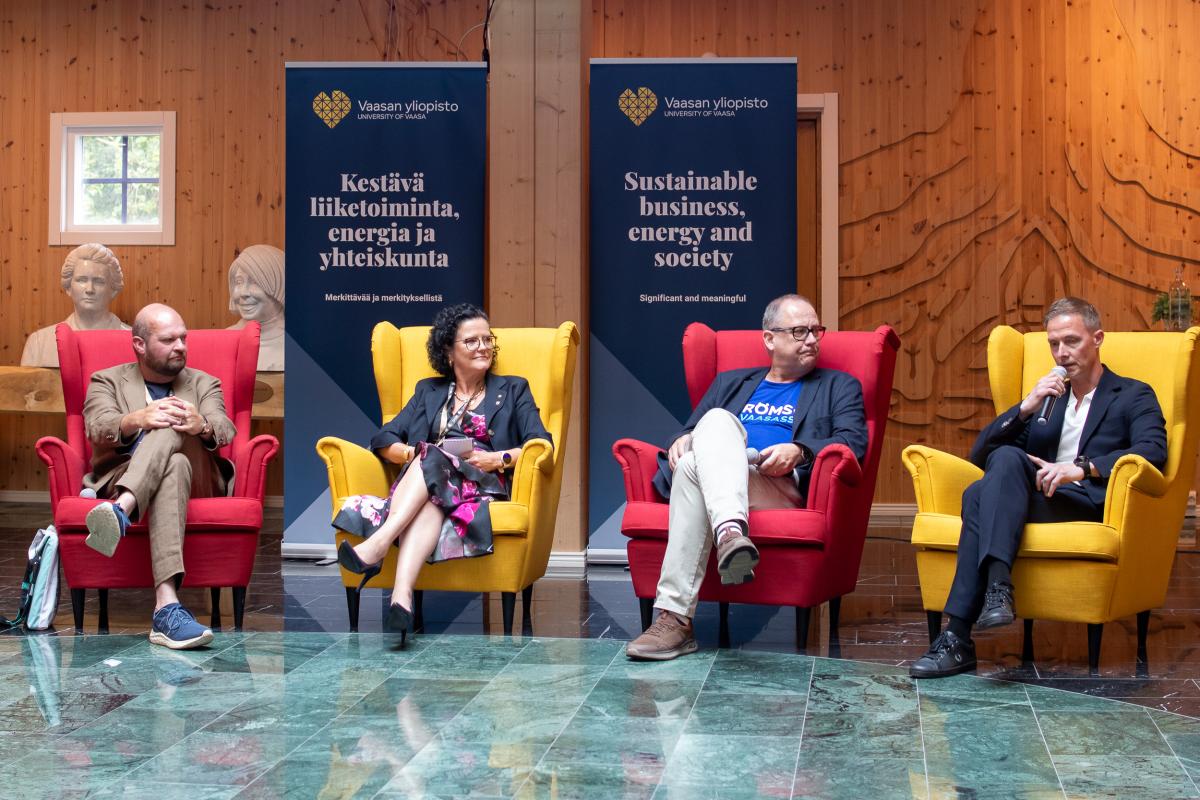University of Vaasa’s event highlights university–city cooperation and regional preparedness
Partnerships for sustainable growth
A panel chaired by Helka Kalliomäki, Assistant Professor of Regional Studies, examined university–city collaboration as part of regional development and skills enhancement.
Professor of Practice Sampo Ruoppila stressed that cooperation must benefit both sides:
– Universities can support cities’ strategic development while learning from their practical operations. This improves the usability of knowledge, strengthens trust and networks, and increases the societal impact of research.
Vaasa Mayor Tomas Häyry said cooperation with the University of Vaasa has intensified over the past couple of years, especially in developing the energy cluster and influencing EU-level policy. However, the cooperation remains too dependent on individuals and short-term projects, and the city leadership and staff do not make sufficient use of research in public administration and urban studies.
Rector Minna Martikainen underlined Vaasa’s unique strengths:
– In Vaasa, leadership, innovation and spirit meet. Above all, we can be a model for others.
Strengthening preparedness and resilience
A second panel, moderated by Petri Uusikylä, Research Director and coordinator of the Preparedness and Resilience Research Platform (PREP), focused on local and regional resilience. He noted that with the planned closure of the Regional State Administrative Agencies (AVI), many of their tasks will be transferred to the new Finnish Supervisory Agency, alongside reforms to preparedness structures.
– The role of regional preparedness has been overlooked when national authorities have taken the lead, such as during the COVID-19 pandemic, Uusikylä said.
Professor of Practice Hanna Smith, Strategic Adviser at the OSCE Secretariat, emphasised that the local level is often the first to detect weak signals and respond to unexpected situations:
–The resilience of the whole country is only as strong as its local level.
Marko Pukkinen, Director General of the Regional State Administrative Agency for Western and Inland Finland, reminded that crises are faced in everyday life and that situational awareness must be built locally and regionally, not just nationally.
Wärtsilä’s Head of Security, Jan Haglund, stressed that trust and timely information-sharing are vital, and called for stronger cooperation between businesses and authorities.
Concerns were raised about centralising preparedness structures and dismantling functioning models. Suggestions included strengthening regional situational awareness, increasing crisis exercises, and offering regional defence training for young people.

